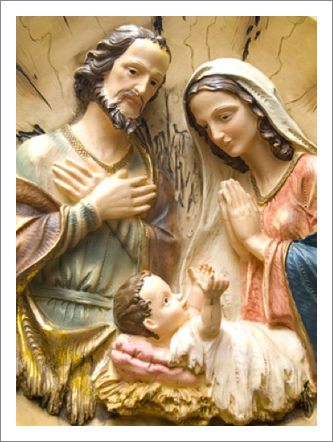Church and Ministry Tax Q&A – Credit Card Rewards by Mark Helland
Church and Ministry Tax Q&A – Credit Card Rewards
Mark Helland, CPA
Mark Helland, CPA is a partner with the public accounting firm of Elliott, Dozier and Helland, PC (www.edhcpa.com) which is located in Tulsa, Oklahoma. Mark specializes in audit, outsourced accounting and tax related issues for church and ministry clients across the United States. To obtain additional information on these services for your church or ministry, Mark can be contacted via email at [email protected] or by phone at (918) 627-2286.

 Question: Is it okay to use air miles and points that were accumulated based on ministry-paid purchases or travel, and redeem those miles and points for personal items or trips in the future? Also, is this considered to be taxable income?
Question: Is it okay to use air miles and points that were accumulated based on ministry-paid purchases or travel, and redeem those miles and points for personal items or trips in the future? Also, is this considered to be taxable income?
While almost all areas of tax law can tend to be confusing, this subject is particularly murky and conflicting as you research it. Following are some of the key things that you need to know in the area.
Credit Card Reward Considerations for Individuals
There are several different categories of “credit card rewards." The first category is “points” that are generated based on the purchase volume on your credit card. This category of credit card reward is viewed by the IRS as a purchase discount and is not considered to be taxable income. For example, if your credit card’s program provides 2% cash back, that would be considered a 2% discount on your purchases. Again, “discounts” are not taxable, so you do not need to keep track of your cash back credit card rewards for tax time.
Travel rewards such as air miles are potentially a different animal though. Travel rewards are not considered to be a “discount” and when cashed in for travel, the value of an airline trip can be quantified. The credit card issuer in theory, could then reported the value of this travel to you via an IRS Form 1099-MISC. However, if your credit card issuer does not disclose that your rewards will be reported to the IRS and you do not receive a 1099, then you do not have to worry about reporting your travel rewards.
Another category of credit card reward is the initial sign-up bonus. With the introduction of large signup bonuses on credit cards, some credit card issuers have added disclosures to the credit card agreement that the sign-up bonus may be considered taxable income. Generally speaking, this may be the case if you receive over $600 back in rewards. If this is the case, you may or may not (depending on the issuer) receive an IRS Form 1099-MISC that you will need to report on your income tax return. It is important to note that that this could apply to more than just cash rewards received for initial sign-up bonuses. In other words, air miles received for an initial sign-up bonus could also be quantified and a 1099 could be issued for these as well.
Credit Card Reward Considerations for “Business”
As noted above, while most personal credit card rewards will not be subject to tax, “business” rewards in the context of a church or ministry are another animal entirely. For example, if your church or ministry purchases an item for $600, and gets a credit card rebate of $15, only $585 can be deducted for the cost of the item as a business expense. In other words, the $15 discount is not necessarily considered income, but it is a reduction of your deduction. This is not so much an issue for churches and ministries that do not pay income tax anyway, but it is important to note that the church or ministry needs to receive the cash rewards. In other words, if you are using a business card in the name of the church or ministry, then the cash back should be received by the church or ministry.
However, if you are using your personal credit card to make business-related purchases and then getting reimbursed by your employer, cash back rewards will not be considered taxable income by the IRS. This means the IRS won’t pursue you for underreporting income by earning rewards on business-related purchases at this time.
A final word on all of these issues that is more of a personal commentary on the subject is this – keep in mind that stewardship of your church or ministry is also an issue here. In my opinion, if the purchases made by your church or ministry generated the reward points or air travel, in my opinion the church or ministry should get the benefit of these rewards. In other words, if a free flight is generated, it should be used for something that has a ministry purpose. Even if the travel is used for say, a trip to Israel that has both a personal and ministry purpose, it would seem to me that this would be acceptable. What I do not think is acceptable is using free air travel (that was earned with church or ministry purchases) to go on a family vacation to Orlando. I just don’t think this could be explained away to donors and there is also the overriding issue of private inurement. I have written previously on private inurement and this is an area that you want to make sure to stay clear of at all cost. As always, feel free to contact on this issue for more help if any questions or concern may arise.

 We all know about Joseph and Mary, the Inn of Bethlehem, the shepherds, the star, and the wise men. They’re all part of the wonderful story we remember and tell this time of year. There’s more to the story, though. Obscure and often overlooked, buried in Matthew’s genealogy and leading up to the birth of Christ are four women.
We all know about Joseph and Mary, the Inn of Bethlehem, the shepherds, the star, and the wise men. They’re all part of the wonderful story we remember and tell this time of year. There’s more to the story, though. Obscure and often overlooked, buried in Matthew’s genealogy and leading up to the birth of Christ are four women. On January 26, 2010 at 1:15am, I suddenly woke up from a deep sleep and God spoke four words very loud and clear in my heart, “THE TITHE IS HOLY!”
On January 26, 2010 at 1:15am, I suddenly woke up from a deep sleep and God spoke four words very loud and clear in my heart, “THE TITHE IS HOLY!” Several years ago there was a commercial on television which said, “It’s 10:00 O’clock. Do you know where your children are?” If we move that into the realm of your church finances, we could restate it this way: “It’s the end of the year. Do you know where your money went?”
Several years ago there was a commercial on television which said, “It’s 10:00 O’clock. Do you know where your children are?” If we move that into the realm of your church finances, we could restate it this way: “It’s the end of the year. Do you know where your money went?” While the new pastor may be the leader by position, he may not in actuality be the true leader of the church. Many pastors function as “chaplains” (pastor without proper Biblical authority); that is, they perform the “priestly functions” such as preaching, performing weddings, funerals, baptisms, etc. They are available when needed, whereas a pastor who is the true leader is the one to whom the people look for direction. He is out front showing the way and the people follow. Most pastors begin as “Chaplains” and move toward being the true leader (pastor with proper Biblical authority). This process is often painful and will sometimes take five or more years (much shorter if the pastor is the founder of a new church).
While the new pastor may be the leader by position, he may not in actuality be the true leader of the church. Many pastors function as “chaplains” (pastor without proper Biblical authority); that is, they perform the “priestly functions” such as preaching, performing weddings, funerals, baptisms, etc. They are available when needed, whereas a pastor who is the true leader is the one to whom the people look for direction. He is out front showing the way and the people follow. Most pastors begin as “Chaplains” and move toward being the true leader (pastor with proper Biblical authority). This process is often painful and will sometimes take five or more years (much shorter if the pastor is the founder of a new church).